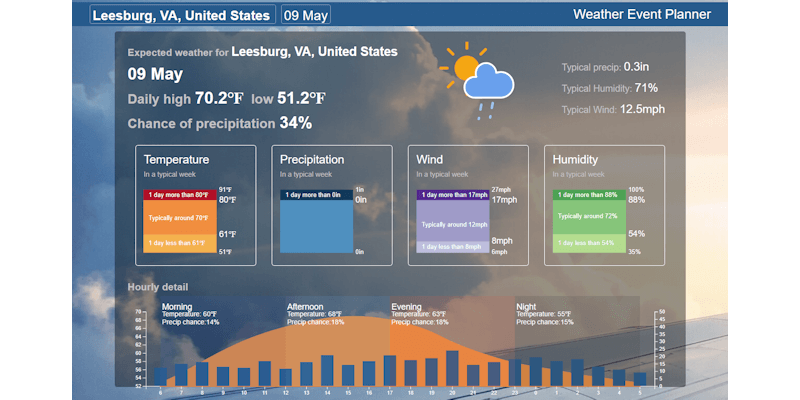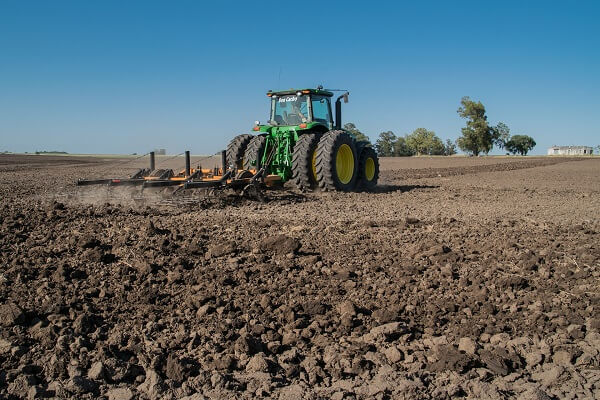Timeline Weather API
The Timeline Weather API is the simplest and most powerful way to retrieve weather data. You can request data over any time window including windows that span the past, present, and future. The API will take care of the combining historical observations, current 15-day forecasts, and statistical weather forecasts to create a single, consolidated dataset …
How to load weather data in PHP
If you are creating web pages or other applications using PHP, then you may find the need to include weather data directly on your page. When incorporating weather data, you can use a pre-built widget or maybe even a WordPress plugin, however if you want full control over how the data is retrieved and displayed, …
Using the Timeline Weather API with multiple locations in the same request
The Timeline Weather API permits a single location for each API request. In some situations, it is convenient to submit multiple locations in the same request rather than as separate API calls. This article describes how to use the Multiple Timeline Weather API endpoint to request weather data for multiple locations in the same call. …
Continue reading “Using the Timeline Weather API with multiple locations in the same request”
Requesting sub-hourly weather data using the Weather API
Sub-hourly historical weather data, or historical weather data with minute-by-minute resolution can be retrieved by users of the weather API. Please see the weather data editions page for details on which weather API plans include sub-hourly data access. Requests for sub-hourly data mirror the same requests for hourly or daily uses however there are some …
Continue reading “Requesting sub-hourly weather data using the Weather API”
Free Weather Tools and Dashboards
One this page you will find a list of our free weather tools and dashboards. These are all accessible without cost and typically without even needing to sign up for a Visual Crossing Weather account. (Of course, we highly recommend that you do sign up as some features are only accessible when logged into our …
Air Quality Elements in the Weather API
The Timeline Weather API offers optional air quality index elements. This article describes how to include them with your API request. Air Quality Elements are currently available globally with limited history and five day forecast (hourly or daily). Please note: The Air Quality Elements are currently in testing and open to all users to provide …
How do I run a weather API query using HTTP POST?
While it is very easy to run weather queries using HTTP GET requests, there are times when it is preferable or even necessary to use HTTP POST requests instead. While HTTP POST requests are a little more complicated to configure and execute, they are well within the reach of any modern script or language. Also, …
Continue reading “How do I run a weather API query using HTTP POST?”
Agriculture elements in the Timeline Weather API
The Timeline Weather API includes elements that are designed for use by the agricultural, farming and horticultural industries. These elements are designed to providing weather data that influence those who grow plants or raise livestock. The elements on this page are available only to certain subscription levels. For more information, please see our pricing page. …
Continue reading “Agriculture elements in the Timeline Weather API”
Date and Times in the Weather API
The Weather API uses a set of standards to include date time information. This article describes the standards used. Date formats in the Weather API Visual Crossing uses ISO 8601 based date formats for both date and times. Dates are formatted according to YYYY-MM-DD format (2022-06-15 for June 15th 2022). Times are formatted according to HH:mm:ss. The hours are specified in …
Weather Data Documentation
The Visual Crossing Weather Data platform provides the ability to easily access weather data sets including weather forecast data, weather history data and historical weather summary data. The data is available for download through the Weather Data Query Page and the Timeline Weather API. Core weather columns These columns are common to most weather data sets unless disabled. …



